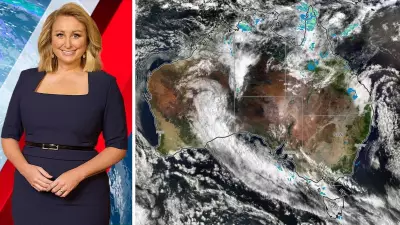
Environment Minister Murray Watt has successfully pushed through landmark reforms to Australia's environmental protection laws after the Coalition failed to reach agreement, forcing the government to partner with the Greens instead.
Dancing with the Greens instead
The political showdown culminated in what Minister Watt described as an invitation to "dance" - but while business groups urged the Coalition to take the floor, the opposition ultimately couldn't agree on the steps. The Greens seized the opportunity, securing significant concessions including exclusion of fossil fuel projects from fast-track approvals and stronger protections against native forest logging and land clearing.
After more than five years of delays since the initial Samuel review was commissioned by former environment minister Sussan Ley, the Environment Protection and Biodiversity Conservation Act reforms have finally been delivered. Watt maintained throughout the process that he was open to dealing with either the Coalition or the Greens, but the opposition's inability to reach consensus left them sidelined.
Coalition negotiations in disarray
Opposition claims that the legislation was rushed were dismissed by government sources, who described Coalition negotiations as chaotic. According to Labor insiders, the opposition made new demands as late as Wednesday, despite earlier confidence from key negotiator Senator Jonno Duniam that a deal was imminent.
Duniam, the manager of opposition business in the Senate and former shadow environment minister, was brought into negotiations in recent weeks to support shadow environment minister Angie Bell. The Tasmanian senator, who previously served as assistant minister for forestry and fisheries in the Morrison government, was reportedly the most enthusiastic among Coalition negotiators about securing an agreement.
Graeme Samuel, who authored the original 2020 review that formed the basis of the legislation, didn't mince words about the Coalition's performance. Samuel declared the opposition had "dealt themselves into irrelevancy" after five years of "obfuscation, obstruction and contradiction."
Broader political implications
The successful passage represents a significant personal victory for Watt, a pragmatic Queenslander from Labor's left faction who has emerged as one of the government's most effective ministers. Prime Minister Anthony Albanese became directly involved in the final stages of negotiations to ensure the deal could pass the Senate quickly.
The outcome disappointed business groups and even drew criticism from Western Australian Labor Premier Roger Cook, who described the failure to reach agreement with the Coalition as a "missed opportunity" for industry concerns.
As Watt celebrated his environmental policy achievement, other senior ministers faced mounting pressures. Treasurer Jim Chalmers confronts challenging budget decisions amid rising inflation, now at 3.8 percent for the year to October, while Climate and Energy Minister Chris Bowen faces scrutiny over his dual role as Australia's COP climate negotiator.
Political theatre continues
The parliamentary drama unfolded alongside other significant political moments, including the unveiling of former Prime Minister Malcolm Turnbull's official portrait. Turnbull didn't hesitate to criticize his former colleagues, suggesting the Coalition's business supporters would be "horrified" by their handling of the environment legislation.
Meanwhile, Barnaby Joyce formally announced his departure from the Nationals, signaling a likely move to One Nation and a potential Senate candidacy. The maverick politician declared that in the Senate, "they'd have to come to me on each piece of legislation and say 'what are your views?'"
The EPBC reforms represent one of the government's most substantial legislative achievements, delivering on both environmental protection and streamlined approval processes for development projects that meet the new standards.





